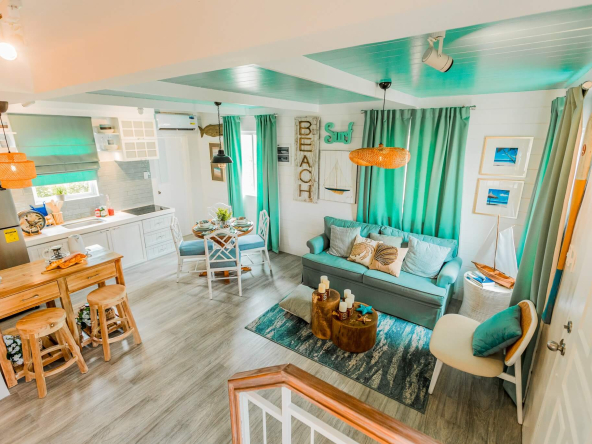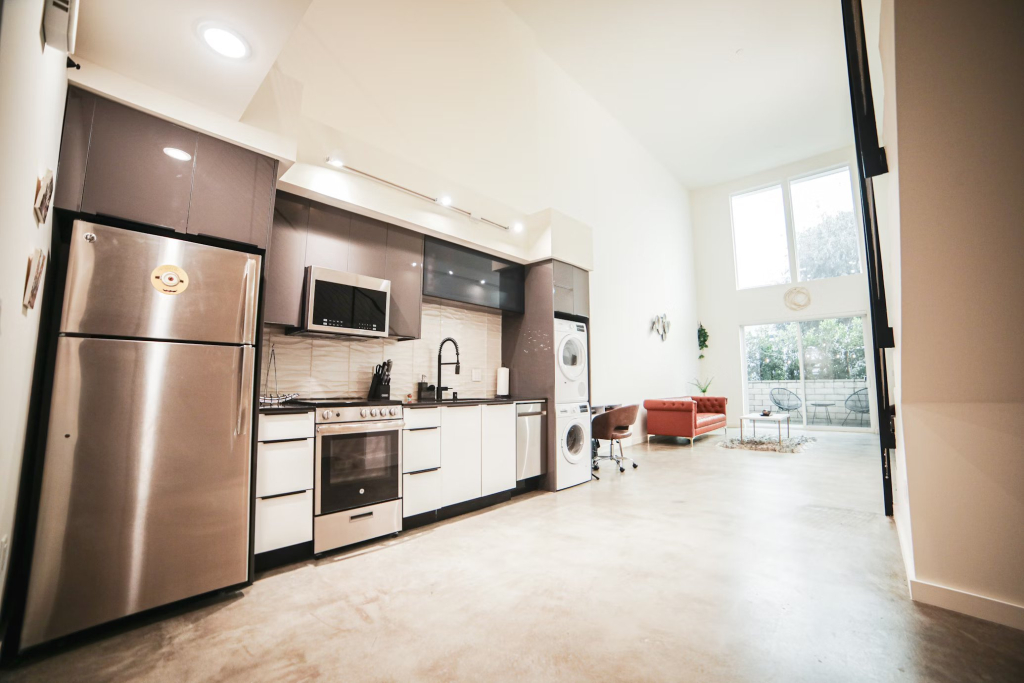
As the temperature rises, summer brings with it a myriad of delights – it is a time for outdoor adventures, family gatherings, and lazy afternoons spent lounging by the pool.
However, because of the sweltering heat that summer brings, most people tend to stay indoors, which often leads to increased energy consumption as keeping your home cool from and comfortable from hot air relies heavily on air conditioning and other forms of cooling system.
Practical Tips To Lessen Electricity Bill This Summer
The mild weather comes at a cost, though. However, you can carefully control your energy use and reduce your energy bill. In this article, let us discover different strategies you can adopt and apply to your home to lessen your energy consumption and costs.
Below is a list of strategies to help you lessen your electricity consumption over the summer.
Use air conditioning devices wisely
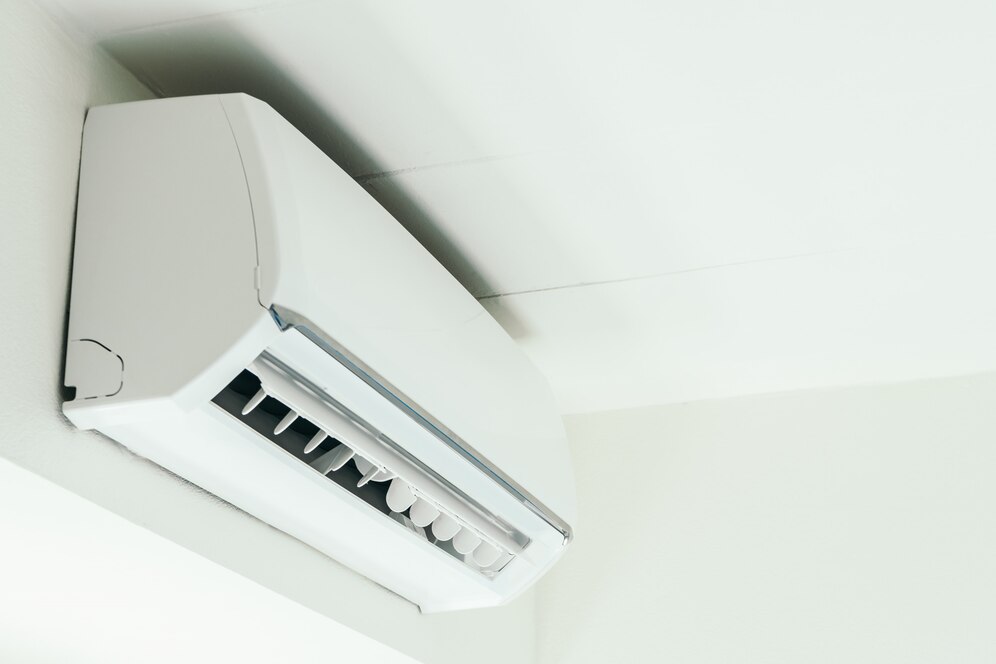
During summer, people tend to blast their air conditioner when they arrive home after a workout, after spending time outdoors, or simply after a generally hot day.
Maximizing use of air conditioner without busting your energy bill
However, this would definitely lead to higher energy costs. Maximizing air conditioner or any cooling system efficiency is essential for achieving comfort without compromising energy consumption.
Tracking energy consumed by setting thermostat at optimal temperature
Setting the thermostat to an optimal temperature can significantly impact energy consumption. Aim for a temperature that is comfortable yet energy-efficient. Usually, the ideal temperature would be around 78°F (25°C). Better yet, invest in an HVAC system that has smart thermostat. Look for units that carry an energy star for utmost energy efficiency.
When you’re gone from home, raise the temperature even higher or, if it’s not too hot, turn the air conditioner off completely to avoid wasting energy cooling an empty house. Pull out from the electrical socket to avoid phantom energy use.
With a smart or programmable thermostat in your AC, you won’t have to go through the hassle of manually adjusting the temperature every time you leave your home. While you’re away from home, these thermostats will automatically alter the temperature in your house.
Check the proper air conditioner size
For those planning to buy an air conditioner, one of the main things you should consider is which air conditioner size is best for you.
An air conditioner that is too small for the space it needs to cool will struggle to maintain comfortable temperatures, especially during peak summer months, which could lead to higher energy costs.
Conversely, an oversized air conditioner may cool the space too quickly, leading to frequent cycling on and off, which can reduce efficiency and increase energy consumption.
Selecting the right size for your air conditioner is more than just a matter of convenience; it is a critical decision with far-reaching implications for comfort, efficiency, and cost-effectiveness.
Clean aircon filters once a month
When you have an air conditioner, one vital task that is often overlooked is the regular cleaning of our air conditioning systems. Despite their indispensable role in keeping us cool and comfortable, air conditioners require diligent maintenance to ensure optimal performance and longevity.
Conduct a periodic energy audit on your air conditioner and other cooling devices, checking for air leakage that allows warm air in keeping them from peak efficiency. Regular maintenance, including monthly cleaning, is essential for prolonging the lifespan of your air conditioning system and impacts on your cooling costs in the process.
Aside from this, it helps remove dust, dirt, pollen, and other airborne particles that accumulate within the system over time. This is essential, especially when there is someone in the house who has allergies.
Consider using fans instead of air conditioners
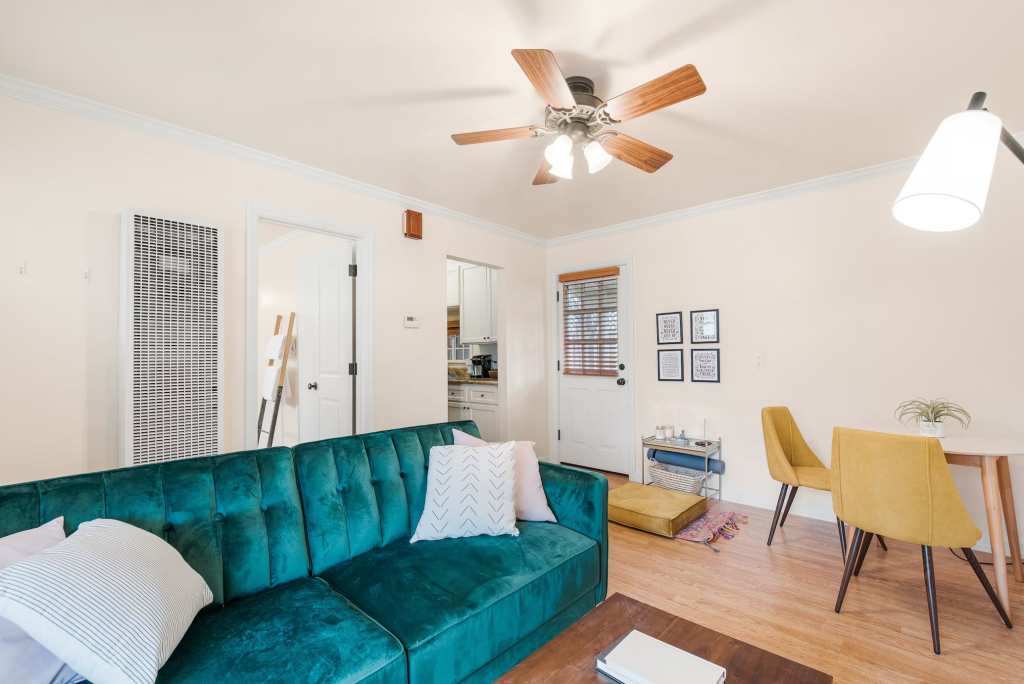
When it comes to keeping your home, the instinctive response for many is to crank up the air conditioning and seek refuge from the heat.
However, even with the strategies mentioned above about how to be energy-efficient in using air conditioning units, it still consumes a significant amount of energy.
Reducing electricity bill by using electric fans
To lower your electricity usage, a great alternative would be to use fans. Ceiling fans, for example, can circulate air throughout a room using just a fraction of the energy required to power an air conditioner. By relying on fans for ventilation, people can significantly reduce their electric bills.
Using fans to reduce cooling expenses is another simple technique to save costs. Ceiling fans are excellent for cooling a whole room, and many houses have them, so there is no need to acquire additional equipment.
If you don’t already have one, portable fans are affordable and easily obtained from any home goods or big-box shop. It is possible to adjust your thermostat by 4 degrees while retaining the same comfort level by using a decent fan.
If you don’t mind a slight breeze, you may turn down the setting on your air conditioner since fans can be highly helpful in cooling a room.
Maintain a light and airy atmosphere in your home
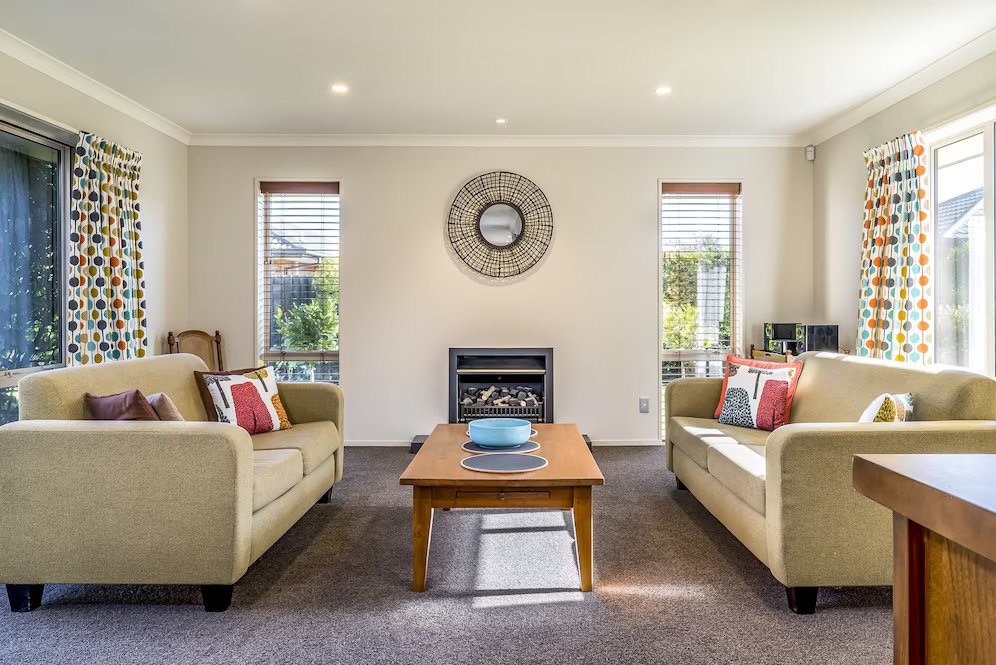
Maintaining a cool and comfortable home becomes a top priority for many during the summer season. While air conditioning may offer instant relief, there are other strategies you need to consider to keep your space cool and create a light and airy atmosphere.
Keep the sun out and the cool air in by closing the curtains
The summer sun is excellent for tanning, it is perfect for your mood, and it is ideal for going to the beach, picnicking, and watching sunsets.
Draw the blinds or curtains during the warmest time of the day
However, this is not the best option if you want to keep your home cool. Sunlight entering your house via your windows will heat it, forcing you to spend more money on your air conditioning system. Draw the blinds during the warmest portions of the day.
When the weather cools down at night or during off peak times, stay cool by opening your blinds or windows once more, allowing you to switch off your air conditioning. Just remember to shut them again in the morning to keep the chilly air trapped. You will be surprised at how much electricity bill you save on.
Optimize cross-ventilation
Cross ventilation is a simple yet effective way to promote airflow and cool your home naturally. Strategically place windows and doors to encourage air circulation throughout your space.
Open windows on opposite sides of your home to create a pathway for fresh air to flow through. Utilize interior doors to create airflow corridors that channel breezes from one room to another.
Switch to LED lighting
After having blocked out the sunlight, you could turn on more lights than usual. However, it would help if you were cautious about the lighting you pick since incandescent bulbs convert 90 percent of their energy into heat.
LED lighting run at lower power
LED bulbs, which run at lower power and generate only half the heat produced by incandescent lights, should be considered an alternative.
LED lighting for remarkable efficiency and longevity
LED lights are an excellent choice for conserving energy due to their remarkable efficiency and longevity. Unlike traditional incandescent bulbs, which waste a significant portion of energy as heat, LED lights convert a higher percentage of electricity into light, resulting in reduced energy consumption and lower utility bills.
Additionally, LED lights have a much longer lifespan than incandescent bulbs, lasting up to 25 times longer on average. This reduces the frequency of bulb replacements.
Incorporate indoor plants
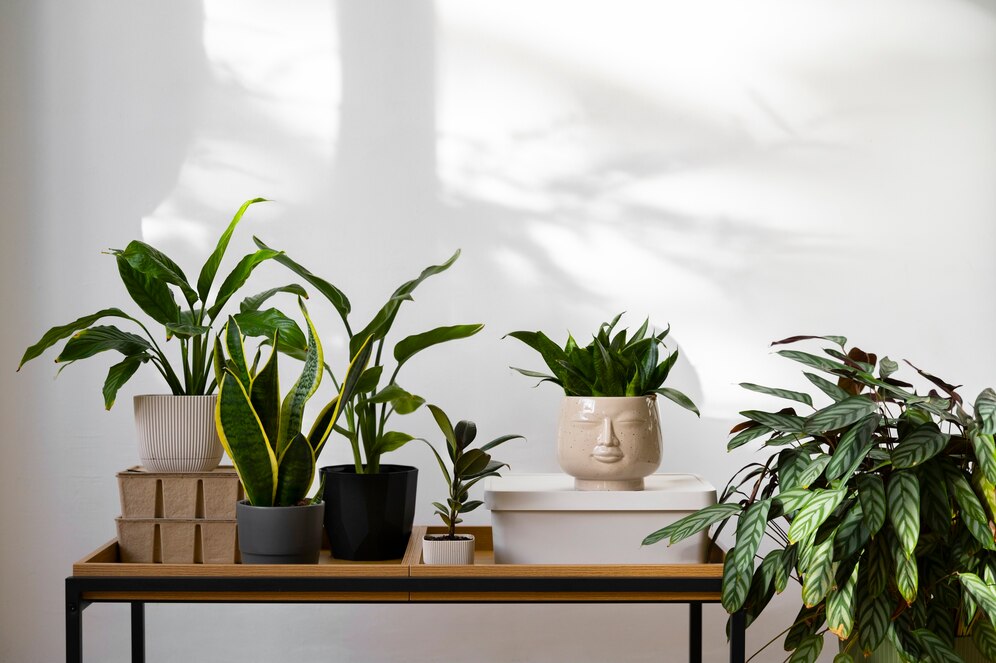
Plants purify air and regulate humidity levels
Indoor plants not only add beauty and greenery to your home but also help purify the air and regulate humidity levels. By incorporating indoor plants into your decor, you can create a healthier, more comfortable living environment while enhancing the overall ambiance of your home.
Choose plants that require minimal maintenance yet big on cooling effects
Choose houseplants that thrive in low light conditions and require minimal maintenance, such as snake plants, peace lilies, or spider plants. Place plants near windows or in areas with good airflow to maximize their cooling effects.
Utilize shades
Shades significantly reduce the amount of heat coming into your home
Shades provide a barrier against solar heat gain by blocking direct sunlight from entering your home through windows and doors. By installing shades on south- and west-facing windows, where the sun’s rays are most intense, you can significantly reduce the amount of heat that penetrates your living space.
Another thing to bear in mind if you intend to spend money on landscaping is that trees give excellent natural shade.
Strategically planted shrubs, trees, and vines may help you save money on cooling expenses by preventing sunlight from reaching your windows, roof, and walls, saving you a lot of money.
By applying these, it provides your home with natural ventilation, optimal airflow, and a sense of openness that promotes comfort and well-being.
Use cold or warm water
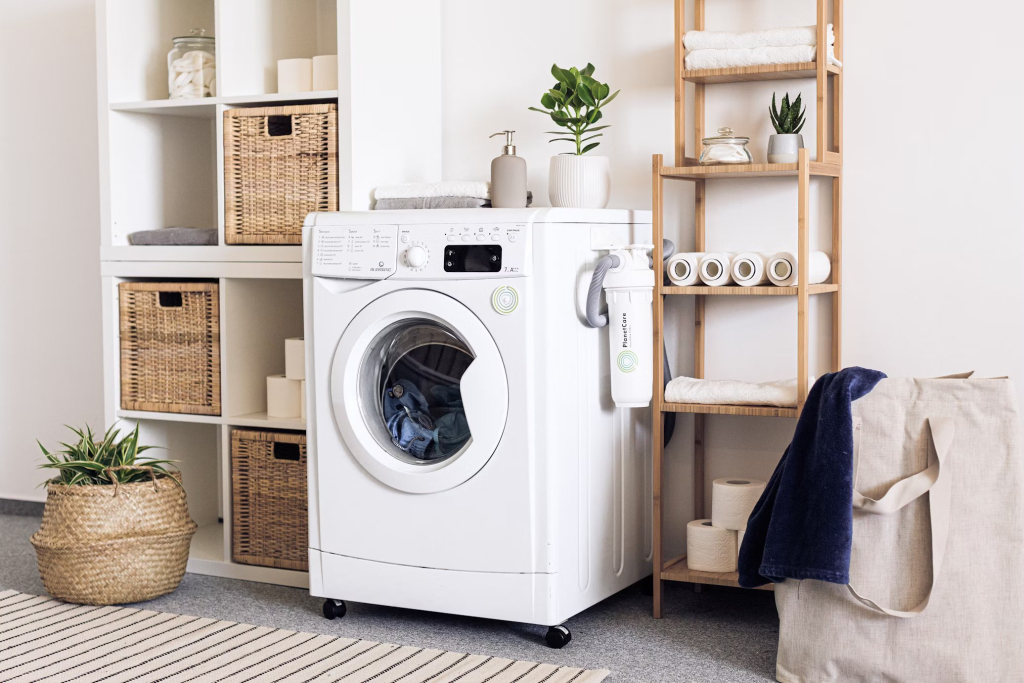
Using cold or warm water instead of hot for everyday tasks is a highly energy-efficient choice. Heating water accounts for a significant portion of energy consumption in households, particularly during the summer when air conditioning is already in high demand.
Avoid using water heater in your shower
Whenever possible, avoid using hot water in your shower. Doing your laundry on either the cold or the warm cycle can save you a significant amount of money in electricity since 90% of the energy is for heating water for the washing machine.
After finishing that, take advantage of the hot weather and dry your items outdoors rather than putting them in the dryer.
Note that the same principle holds for dishes as well – instead of putting them through the drying cycle, wash them in cold water and allow them to air dry.
Keep track of all of your electronic devices

The demand for electricity surges as households rely more heavily on electronic devices for cooling, entertainment, and everyday tasks.
However, managing these devices is essential to be aware of their energy efficiency, minimize energy consumption, and reduce utility bills. Keeping track of all electronic devices allows people to gain a better understanding of their energy consumption habits.
By monitoring the usage patterns of appliances, electronics, and cooling systems, individuals can identify areas of inefficiency and make informed decisions to reduce energy waste. Devices such as laptops, curling irons, hairdryers, stereos, and TVs all contribute to your home’s heating, so make sure they are off when not in use.
In addition, you should also take note of what appliances to buy. The best option, if you are trying to minimize electricity consumption, is to opt for energy-efficient appliances. Check on tips from the energy information administration to keep you updated.
Consider using smart power strips
Smart power strips are a convenient and effective way to manage the energy usage of electronic devices, particularly during the summer when energy demand is high.
These devices automatically shut off power to electronics when they are not in use or enter standby mode, preventing energy vampire loads and reducing unnecessary electricity consumption.
By following these tips, you would not need to worry about crazy electricity bills. Plus, this will keep your homes safe and secured from fire breakouts and any calamities.
In communities like Camella, safety and security are two of the major priorities, especially this summer.
Be sure to give the best care to your family by choosing a home that you can rely on. Camella’s house and lot properties are available across the Philippines, giving you the best options to choose from.

Celebrate Life’s Milestones in Camella!
Make unforgettable memories in a Camella home.
Our communities are designed to elevate your living experience.

